Did you know Batan Island is home to the Ivatan people, whose stone houses have withstood typhoons for centuries, making it one of the most architecturally resilient cultures in the Philippines? This northernmost province offers a rare combination of breathtaking landscapes, rich cultural heritage, and remarkably low tourist density—with only about 18,000 annual visitors despite being consistently ranked as one of the most memorable destinations in the country.
Getting There & Planning Your Journey
Batan Island, the main island of Batanes province, is primarily reached by air through Basco Airport. The island’s remote location—closer to Taiwan than to Manila—makes planning ahead essential for a smooth journey.
Flight Options
Several airlines operate flights to Basco Airport:
- Philippine Airlines (PAL Express): Daily flights from Manila, typically in the morning
- SkyJet Air: Flights on Mondays, Wednesdays, and Fridays
- Wakay Air: Daily morning flights
Flight prices typically range from ₱4,000 to ₱15,000 (approximately $70-$270 USD), with an average cost of around ₱7,000 ($125 USD). The flight duration from Manila is approximately 1 hour and 45 minutes.
Travel Tips
Pro Tip: Book weekday flights instead of weekends for better rates. If you’re lucky, you might catch promotional fares as low as ₱500 ($9 USD) during airline seat sales!
Best Time to Visit Batan Island
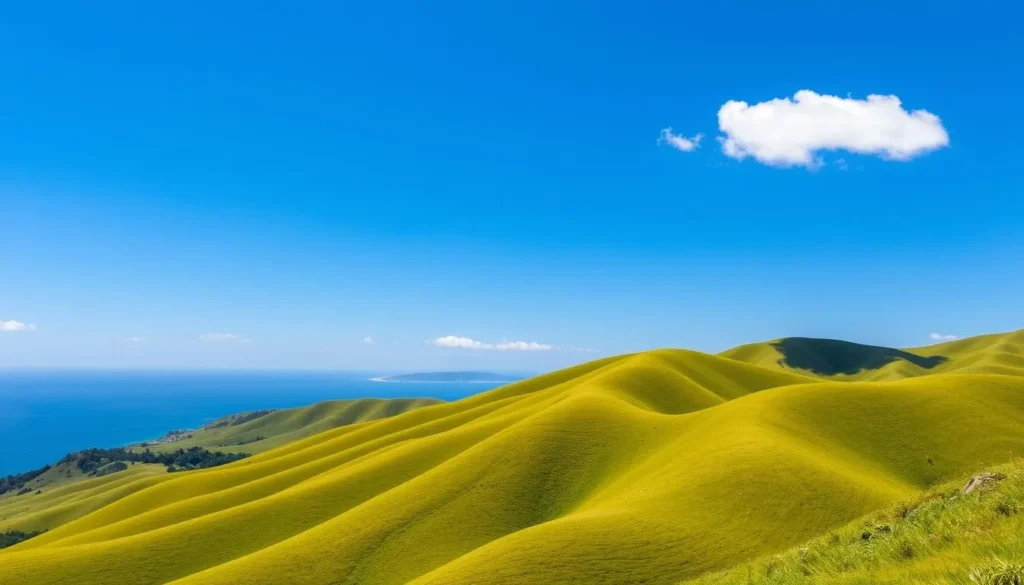
Batan Island experiences distinct seasons that significantly impact your travel experience. While the island is often mistakenly thought to be constantly battered by typhoons, it actually enjoys several months of ideal weather conditions.
Recommended Months: March to June
The dry season from March to June offers the most favorable conditions for exploring Batan Island:
- April is typically the driest month with minimal rainfall
- Clear skies provide perfect conditions for photography
- Average temperatures range from 20°C to 30°C (68°F to 86°F)
- Lower risk of flight cancellations due to weather
Months to Avoid: July to November
The rainy season brings challenges that might impact your trip:
- August typically experiences the most typhoons
- Higher chance of flight delays or cancellations
- Some outdoor activities may be limited by weather
- Boat trips to nearby islands can be rough or unavailable
| Season | Months | Weather Conditions | Best For |
| Dry Season | March to June | Sunny, minimal rain, 20-30°C (68-86°F) | Hiking, photography, island hopping |
| Rainy Season | July to November | Frequent rain, possible typhoons | Budget travel, fewer tourists |
| Cool Season | December to February | Cooler temperatures, occasional rain | Cultural experiences, Christmas festivities |
Weather Note: Batan Island experiences four unofficial “seasons,” with November to February being notably cooler. Pack layers if visiting during these months as temperatures can drop, especially in the evenings.
Getting Around Locally
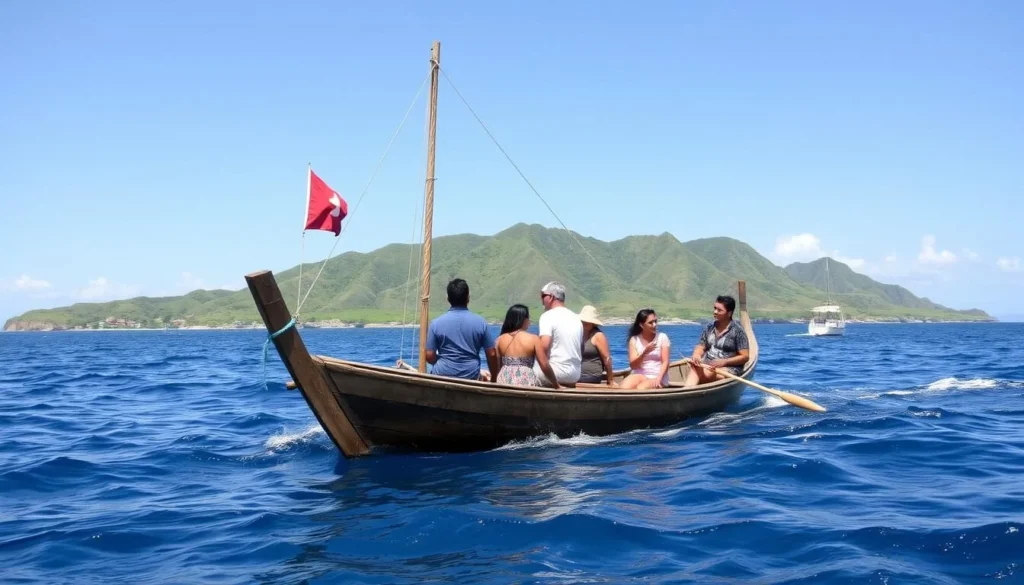
Though Batan Island is the smallest province in the Philippines, its rolling terrain and scattered attractions make transportation planning essential. Here are the best ways to explore this beautiful island:
Tricycles (Batoda)
The most popular way to get around Batan Island is by tricycle, locally known as “Batoda.” These three-wheeled vehicles are perfect for exploring the main island:
- North Batan tour: approximately ₱1,000 ($18 USD)
- South Batan tour: approximately ₱1,500 ($27 USD)
- Short distances within Basco: ₱30-50 ($0.50-0.90 USD)
Motorcycles & Bicycles
For more independent travelers, renting a motorcycle or bicycle offers flexibility:
- Motorcycle rental: ₱500-1,000 ($9-18 USD) per day
- Bicycle rental: ₱300 ($5.50 USD) per day or ₱25 ($0.45 USD) per hour
- Perfect for exploring at your own pace
Jeepneys & Vans
Public jeepneys operate around Batan Island from 5:00 AM to 5:00 PM daily. For larger groups, private van rentals start at ₱2,000 ($36 USD) per day depending on the vehicle size.
Island Hopping by Boat
To reach the other inhabited islands of Batanes (Sabtang and Itbayat), you’ll need to travel by traditional Ivatan boats called “faluwa”:
- Batan to Sabtang: ₱100 ($1.80 USD) one-way, approximately 30-60 minutes
- Batan to Itbayat: ₱450 ($8 USD) one-way, approximately 2-4 hours
Important: Boat schedules are weather-dependent. Sabtang boats typically depart from Ivana port between 6:00-7:00 AM with return trips until 2:00-3:00 PM. Itbayat boats depart from Basco between 6:00-9:00 AM with returns from 11:00 AM-2:00 PM.
Where to Stay in Batan Island
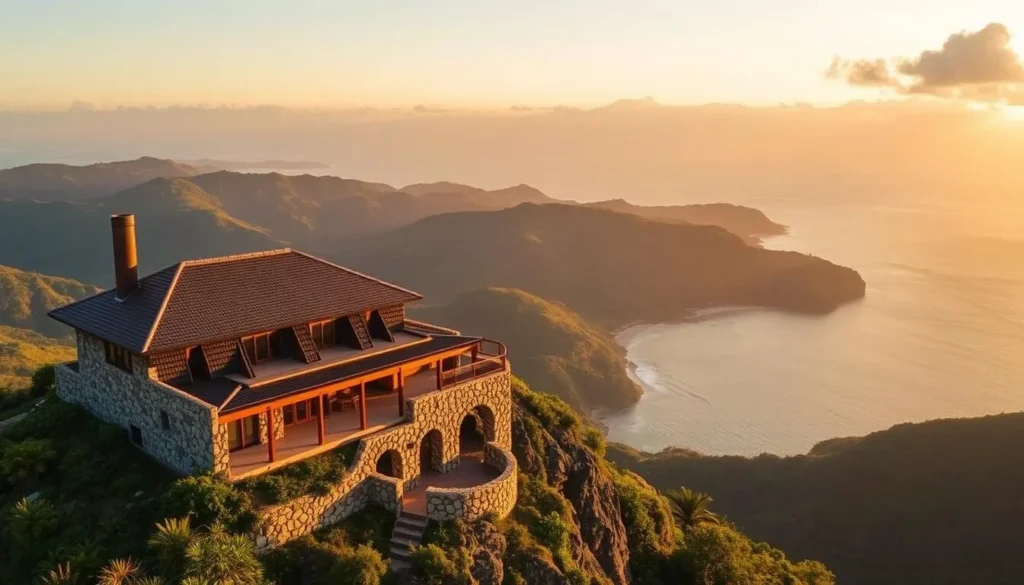
Despite being the smallest province in the Philippines, Batan Island offers a variety of accommodations to suit different budgets and preferences. Most visitors stay in Basco, the provincial capital, where you’ll find the widest range of lodging options.
Luxury Accommodations
Fundacion Pacita Nature Lodge
The island’s premier luxury option, this former home of internationally renowned artist Pacita Abad has been transformed into a stunning lodge perched on a hilltop with breathtaking views.
- Rooms feature local art and modern amenities
- On-site restaurant uses ingredients from their local farm
- Panoramic views of the sea and mountains
- Price range: ₱8,000-12,000 ($145-220 USD) per night
Mid-Range Options
Bernardo’s Hotel
Located just five minutes from Basco Airport, this comfortable hotel offers sea views and an in-house Italian restaurant.
- Air-conditioned rooms with private bathrooms
- On-site restaurant (Casa Napoli)
- Price range: ₱2,500-3,500 ($45-65 USD) per night
Batanes Seaside Lodge
A comfortable option with excellent ocean views and a convenient location near the town center.
- Clean, spacious rooms with basic amenities
- Helpful staff who can arrange tours
- Price range: ₱2,000-3,000 ($36-55 USD) per night
Budget-Friendly Homestays
For travelers on a budget, several homestays offer authentic Ivatan hospitality:
- Marfel’s Lodge: Popular budget option near Basco town center (₱800-1,200/$15-22 USD per night)
- Troy’s Lodge: Simple accommodations with friendly service (₱700-1,000/$13-18 USD per night)
- DDD Habitat Lodging House: Clean, basic rooms with shared facilities (₱600-900/$11-16 USD per night)
Accommodation Tip: Book your accommodations well in advance, especially during peak season (March-May), as options are limited and fill up quickly. Many homestays don’t have online booking systems, so contact them directly via phone or email.
Dining & Local Cuisine
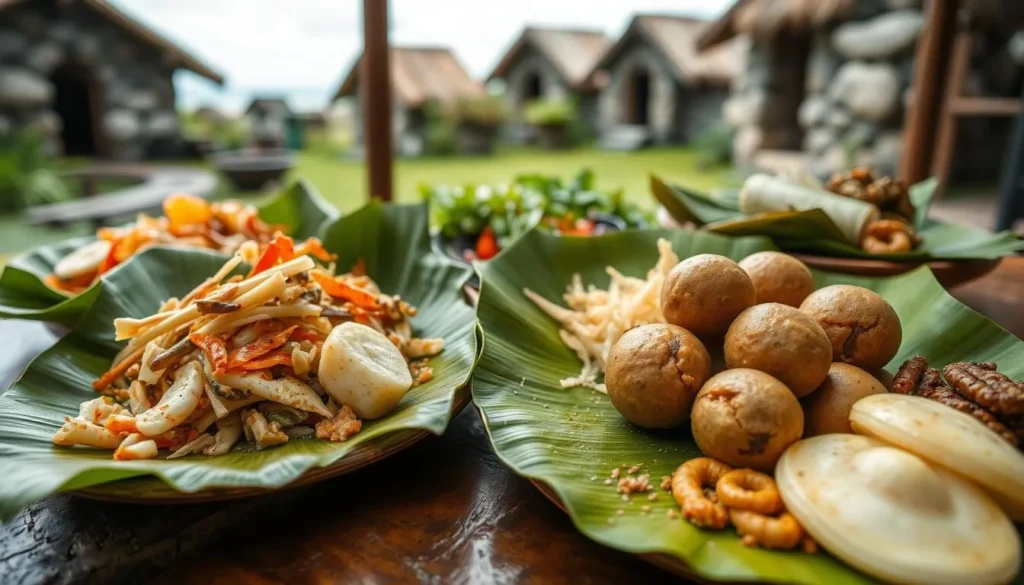
Batan Island’s cuisine reflects its unique geography and culture, with a focus on fresh seafood, local produce, and traditional Ivatan cooking methods. Many dishes are served wrapped in vunung (breadfruit tree leaves), a sustainable practice that adds a distinctive flavor.
Must-Try Ivatan Dishes
Uvud
A traditional dish made from grated banana heart or stalks mixed with ground meat and minced fish, typically served as meatballs with savory sauce.
Vunes
Batanes’ version of laing, made with preserved taro (gabi) leaves and stalks cooked with cream, garlic, pork, and sponge gourd (patola).
Luñis (Luniz)
The Ivatan version of adobo, made with pork and rock salt, slow-cooked until the meat becomes golden brown and crispy. Best enjoyed with a vinegar dip.
Dibang (Flying Fish)
A local specialty often served kilawin-style (similar to ceviche), marinated in vinegar and seasoned with garlic and onions.
Where to Eat
While Batan Island has limited dining establishments, there are several noteworthy places to enjoy local cuisine:
- Café du Tukon: Located at Fundacion Pacita, offering farm-to-table cuisine with panoramic views
- Pension Ivatan Restaurant: Serves authentic Ivatan dishes in generous portions
- Honesty Coffee Shop: A unique unmanned store operating on the honor system, perfect for grabbing snacks and refreshments
“The food in Batanes is as honest as its people—simple, unpretentious, and deeply connected to the land and sea.”
Foodie Tip: Don’t miss the opportunity to try payi (lobster), which is available at a fraction of the price you’d pay in major cities. Also look for seasonal specialties like coconut crabs when available.
Attractions, Sightseeing & Activities
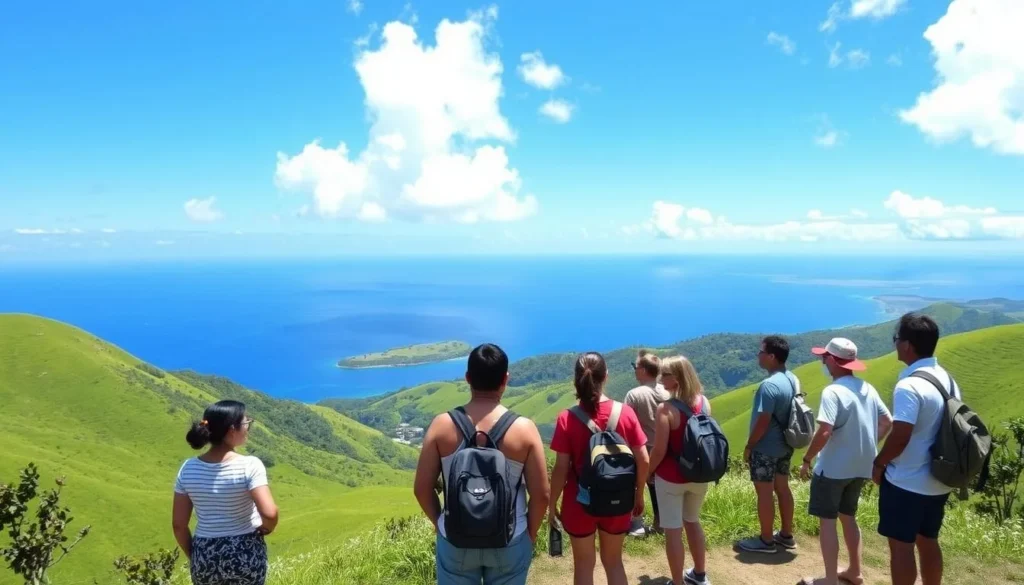
Batan Island offers a wealth of natural and cultural attractions that showcase its unique beauty and heritage. The island is typically explored in two main sections: North Batan and South Batan.
North Batan Highlights
Vayang Rolling Hills
These seemingly endless waves of rolling hills offer breathtaking views of the West Philippine Sea and surrounding islands. It’s one of the most photographed spots in Batanes and perfect for sunrise or sunset visits.
Basco Lighthouse
Standing 66 feet (20 m) tall on Naidi Hills, this iconic lighthouse offers panoramic 360-degree views of Basco town, the port, and the surrounding seascape.
Valugan Boulder Beach
A unique shoreline lined with large boulders expelled during Mt. Iraya’s eruption in 400 AD. While swimming isn’t recommended due to strong waves, it’s a photographer’s paradise.
Mt. Carmel Chapel
The most recently built worship house in Batanes, this chapel adopted the traditional stone house style and offers stunning views from its hilltop location.
South Batan Attractions
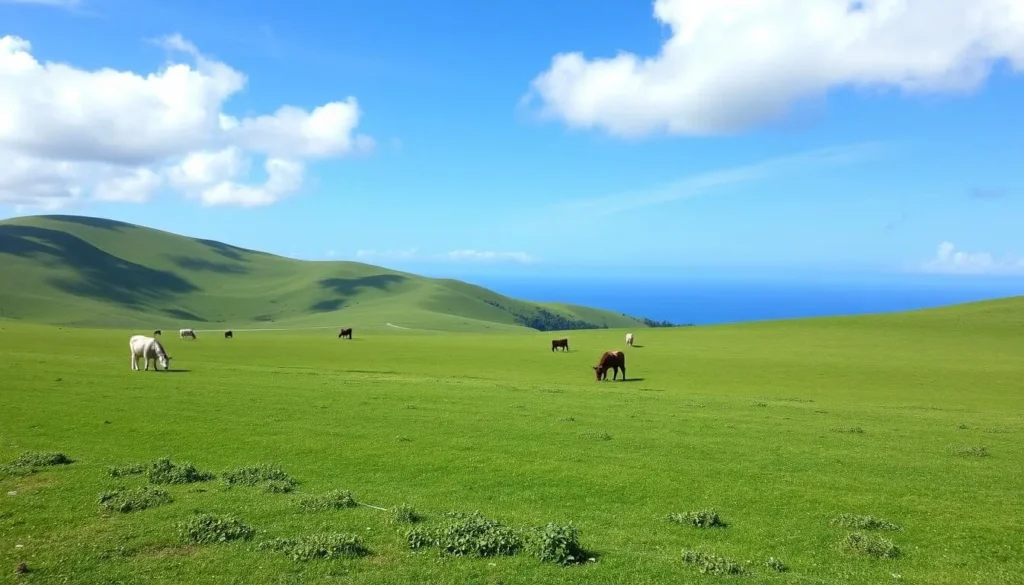
Marlboro Country (Rakuh a Payaman)
Named by foreign tourists for its resemblance to the famous cigarette advertisements, this vast pastureland offers sweeping views of rolling hills where cows, carabaos, and horses graze freely.
House of Dakay
One of the oldest and best-preserved stone houses in Batanes, built in 1887. It survived the destructive earthquake of 1918 and stands as a testament to traditional Ivatan architecture.
Tayid Lighthouse
Located in Mahatao town, this hexagonal lighthouse offers stunning views of the Pacific Ocean and is particularly beautiful during sunrise.
Honesty Coffee Shop
A world-famous unmanned store that operates on the honor system, reflecting the Ivatan people’s honesty and trustworthiness. Customers serve themselves and leave payment in a designated box.
Sabtang Island: A Day Trip Adventure
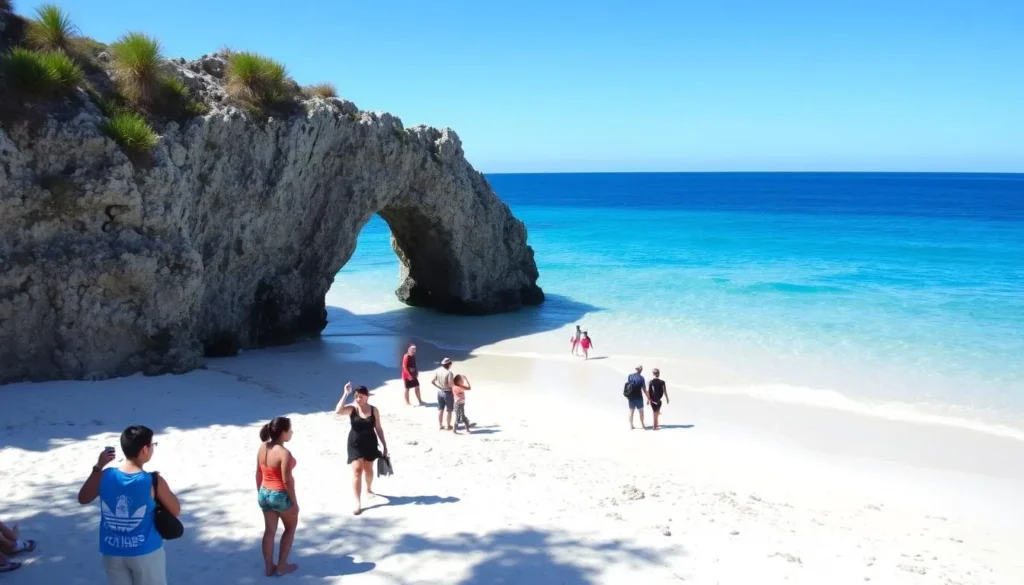
No visit to Batan Island is complete without a day trip to nearby Sabtang Island, home to some of the best-preserved traditional Ivatan villages and stunning coastal scenery.
How to Get There
Sabtang Island is accessible by faluwa (traditional Ivatan boat) from Ivana port in Batan. The journey takes 30-60 minutes depending on sea conditions. Boats typically depart between 6:00-7:00 AM with return trips until 2:00-3:00 PM. The fare is ₱100 ($1.80 USD) each way, plus a ₱200 ($3.60 USD) environmental fee.
Important: The boat ride can be quite adventurous with strong waves. Bring a waterproof bag for your belongings and consider motion sickness medication if you’re prone to seasickness.
Top Attractions in Sabtang
- Chavayan Village: A well-preserved traditional village with stone houses, narrow streets, and the only church in Batanes still roofed with cogon grass
- Morong Beach: Home to the iconic Nakabuang Stone Arch, one of the most photographed spots in Batanes
- Savidug Village: Known for its rows of traditional stone houses and historical significance
- Chamantad-Tinyan Viewpoint: Offers spectacular panoramic views of the coastline and rolling hills
Museums, Cultural Spots & Festivals
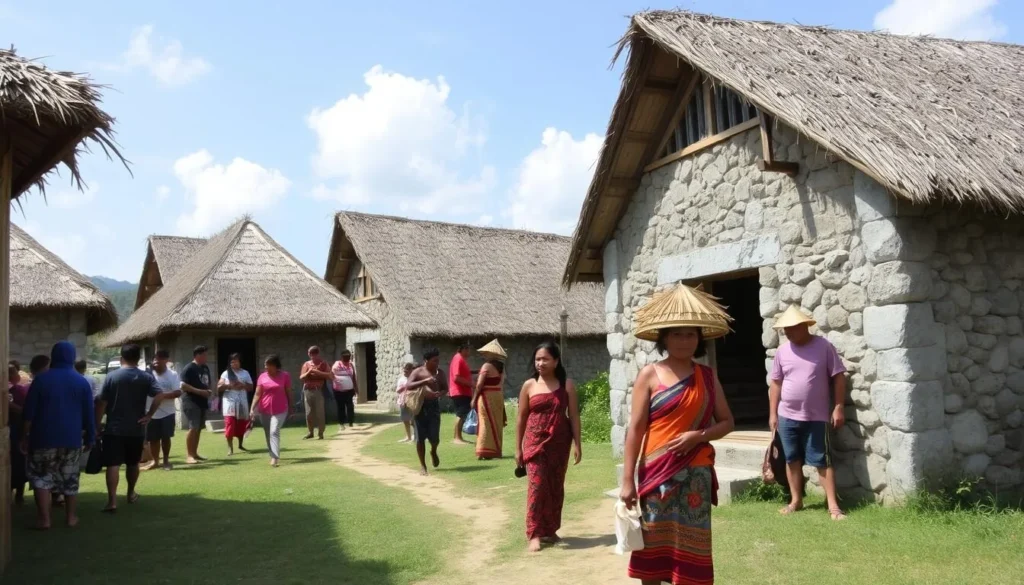
Batan Island’s rich cultural heritage is evident in its museums, historical sites, and vibrant festivals that celebrate Ivatan traditions.
Cultural Attractions
Batanes Cultural Heritage Museum
Located in Basco, this museum houses artifacts, photographs, and exhibits that showcase Ivatan history, traditions, and daily life. It’s an excellent starting point to understand the island’s unique culture.
LORAN Station
Originally a “Long-Range Aid to Navigation” station used by US Coast Guards, it now serves as a National Museum branch in Imnajbu, South Batan.
Traditional Stone Houses
Throughout Batan Island, you’ll find traditional Ivatan stone houses with thick limestone walls and cogon grass roofs, designed to withstand the island’s strong typhoons and harsh weather.
Idjangs (Ancient Fortresses)
These natural rock formations served as fortifications for ancient Ivatans during times of war. There are four main Idjangs in Batanes, with Savidug Idjang considered the most perfectly shaped.
Festivals & Celebrations
Timing your visit with a local festival offers a unique opportunity to experience Ivatan culture at its most vibrant:
- Batanes Day (June 26): A week-long celebration with fairs, parades, sports festivals, and cultural shows
- Basco Fiesta (August 8): Celebrates the feast of Santo Domingo de Guzman with religious processions and community gatherings
- Kapayvanuvanua (March): A traditional fishing ritual in Diura Fishing Village marking the start of the fishing season
“During fiestas in Batanes, every home is open to visitors—even strangers. You can visit any house to celebrate, meet, and eat with the locals, experiencing true Ivatan hospitality.”
Sports, Nature & Outdoor Experiences
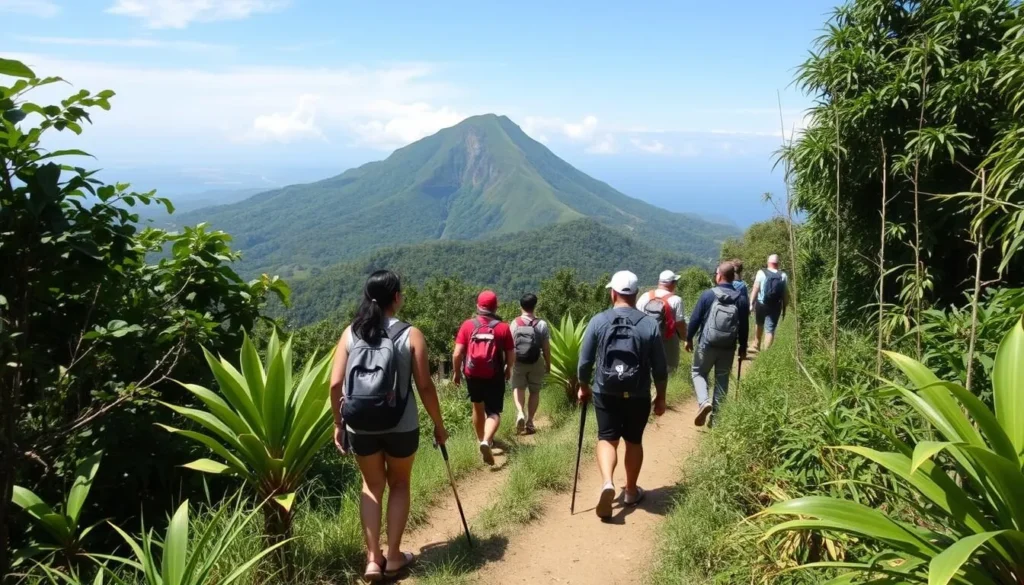
Batan Island’s dramatic landscapes provide the perfect backdrop for outdoor adventures and nature experiences. From mountain hiking to coastal exploration, there’s something for every outdoor enthusiast.
Hiking & Trekking
Mt. Iraya
This dormant volcano stands approximately 1,009 m (3,310 ft) above sea level and offers a challenging but rewarding hike. The trail passes through abundant endemic flora and fauna, with spectacular views from the summit (weather permitting).
Difficulty: Moderate to difficult
Duration: 4-5 hours one way
Vayang Rolling Hills Trek
For a less strenuous option, explore the rolling hills on foot. Various trails allow you to wander through the picturesque landscape at your own pace, with plenty of photo opportunities along the way.
Difficulty: Easy to moderate
Duration: 1-3 hours depending on route
Water Activities
While Batan Island isn’t primarily known as a beach destination, there are several coastal activities to enjoy:
- Fishing with locals: Experience traditional fishing methods alongside Ivatan fishermen
- Snorkeling at Kural Marine Sanctuary: Explore the rich marine life in this protected area
- Swimming at Maydangeb White Beach: Enjoy the white sand and clear waters of this beautiful cove
- Diving: Discover underwater sites with local dive operators (for experienced divers)
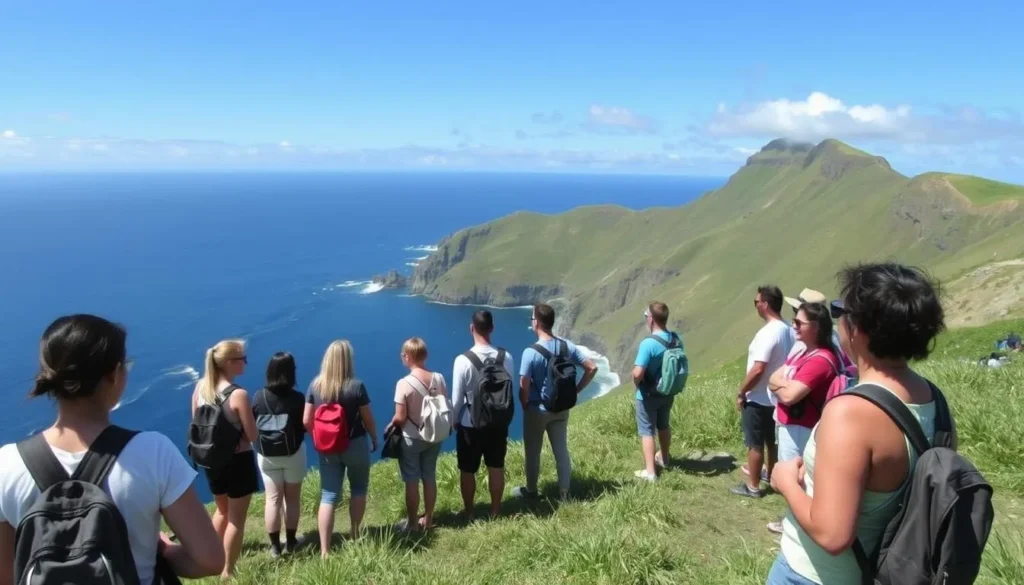
Photography Spots
Batan Island is a photographer’s paradise with countless scenic viewpoints:
- Sunrise at Valugan Boulder Beach: Capture the morning light on the volcanic boulders
- Sunset at Naidi Hills: Watch the sun sink into the West Philippine Sea
- Alapad Pass: Famous for its dramatic cliff-side road and panoramic views
- Rakuh a Payaman (Marlboro Country): Perfect for landscape photography, especially in the golden hours
Safety, Etiquette & Local Customs
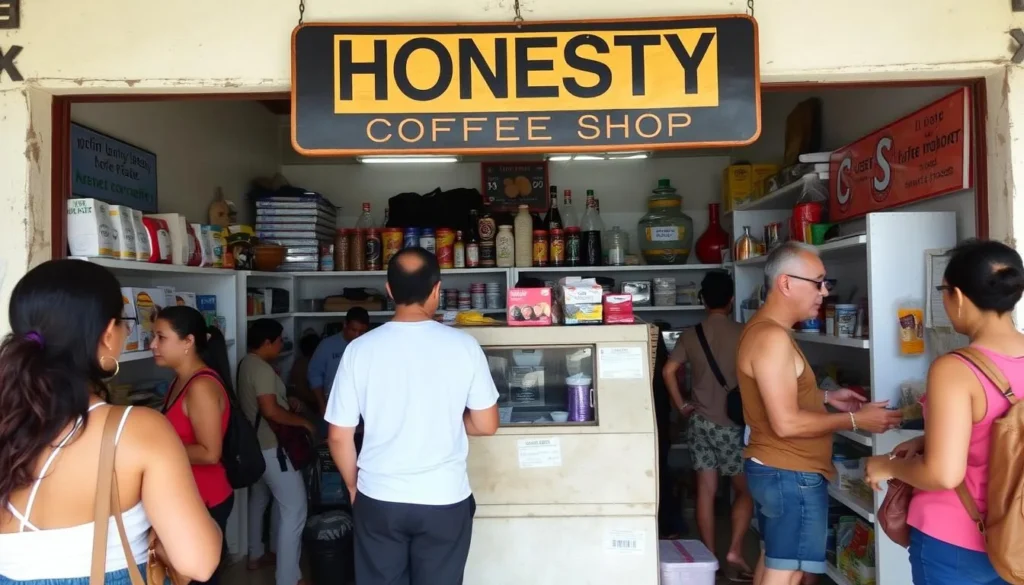
Batan Island is known for its exceptionally low crime rate and the honesty of its people. The Ivatan culture is built on respect, community, and harmony with nature.
Safety Information
- Batan Island is considered one of the safest places in the Philippines with virtually no crime
- The main safety concerns are related to weather and natural conditions
- Be cautious when swimming as some beaches have strong currents
- During rainy season, be prepared for sudden weather changes and potential flight cancellations
Local Customs & Etiquette
Respecting local customs will enhance your experience and show appreciation for Ivatan culture:
- Always ask permission before taking photos of locals or their properties
- Remove shoes when entering someone’s home
- Dress modestly, especially when visiting churches and villages
- During fiestas, it’s acceptable to visit homes even without an invitation—this is part of the open-door tradition
- Practice the same honesty that locals are known for—pay for goods and services fairly
Helpful Ivatan Phrases
While most Ivatans speak English and Filipino, learning a few local phrases will be appreciated:
- Dius! – Hello! (when arriving at someone’s house)
- Kapian ka pa nu Dius! – May God bless you!
- Ara ka mangu? – How are you?
- Dius mamahes! – Thank you!
- Avek dana / Mangay aku na – Goodbye
Cultural Tip: The Honesty Coffee Shop is more than just a tourist attraction—it’s a symbol of Ivatan values. When visiting, be sure to follow the honor system by paying the exact amount for what you take and cleaning up after yourself.
Visitor Comments About Batan Island
“The untouched beauty and warm locals made this feel like discovering a secret paradise. Watching the sunrise from Vayang Rolling Hills was a spiritual experience. The Ivatan people’s honesty and kindness are as remarkable as the landscapes—I left my camera at a restaurant and had it returned with everything intact the next day!”
“Waking up to those rolling hills and coastal views was worth every moment of the journey. The traditional stone houses are architectural marvels—it’s amazing how they’ve withstood centuries of typhoons. Don’t miss the boat trip to Sabtang Island, despite the rough seas, the cultural villages there are like stepping back in time.”
“The cultural authenticity here is remarkable—from the stone houses to the traditional fishing methods. I’ve traveled extensively throughout Southeast Asia, but Batan Island offers something truly unique. The food was a highlight—fresh seafood and local specialties like uvud served by the friendliest people you’ll ever meet. Just be prepared for weather changes that can affect your flight schedule.”
Practical Travel Tips
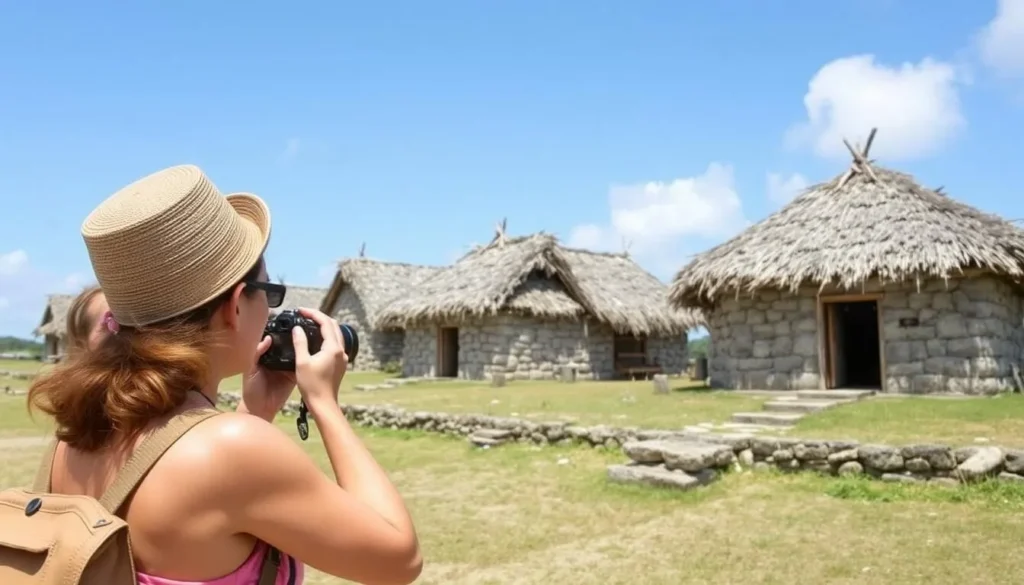
Money Matters
- There are no money exchange facilities in Batanes
- Only two ATMs are available (Landbank and PNB in Basco)
- Credit cards are not widely accepted
- Bring enough Philippine Pesos (PHP) for your entire stay
Communication
- Internet connection is limited and slow
- Smart and Globe networks have LTE coverage in some areas
- Consider purchasing a local SIM card upon arrival
- Inform important contacts about potential communication limitations
What to Pack
- Light, breathable clothing for warm days
- Light jacket or sweater for cool evenings
- Sturdy walking shoes for exploring
- Sunscreen, hat, and sunglasses
- Motion sickness medication for boat trips
- Waterproof bag for boat journeys
- Cash in Philippine Pesos
Environmental Fees
- Batan Island: ₱350 ($6.30 USD)
- Sabtang Island: ₱200 ($3.60 USD)
- Itbayat Island: ₱100 ($1.80 USD)
Your Batan Island Adventure Awaits
Batan Island offers a rare combination of breathtaking landscapes, rich cultural heritage, and genuine hospitality that’s increasingly hard to find in today’s world. From the moment you land at Basco Airport and glimpse the rolling hills against the backdrop of Mt. Iraya, you’ll understand why visitors describe this place as magical.
Whether you’re watching the sunrise paint the Vayang Rolling Hills in golden light, exploring centuries-old stone houses that have withstood nature’s fury, or simply enjoying the warm company of the Ivatan people, Batan Island promises experiences that will stay with you long after you leave.
This northernmost paradise may require extra effort to reach, but as countless travelers before you have discovered, the journey to Batan Island isn’t just a trip—it’s a pilgrimage to one of the Philippines’ most precious and unspoiled treasures. Pack your sense of adventure, bring your camera, and prepare to fall in love with the timeless beauty of Batanes.
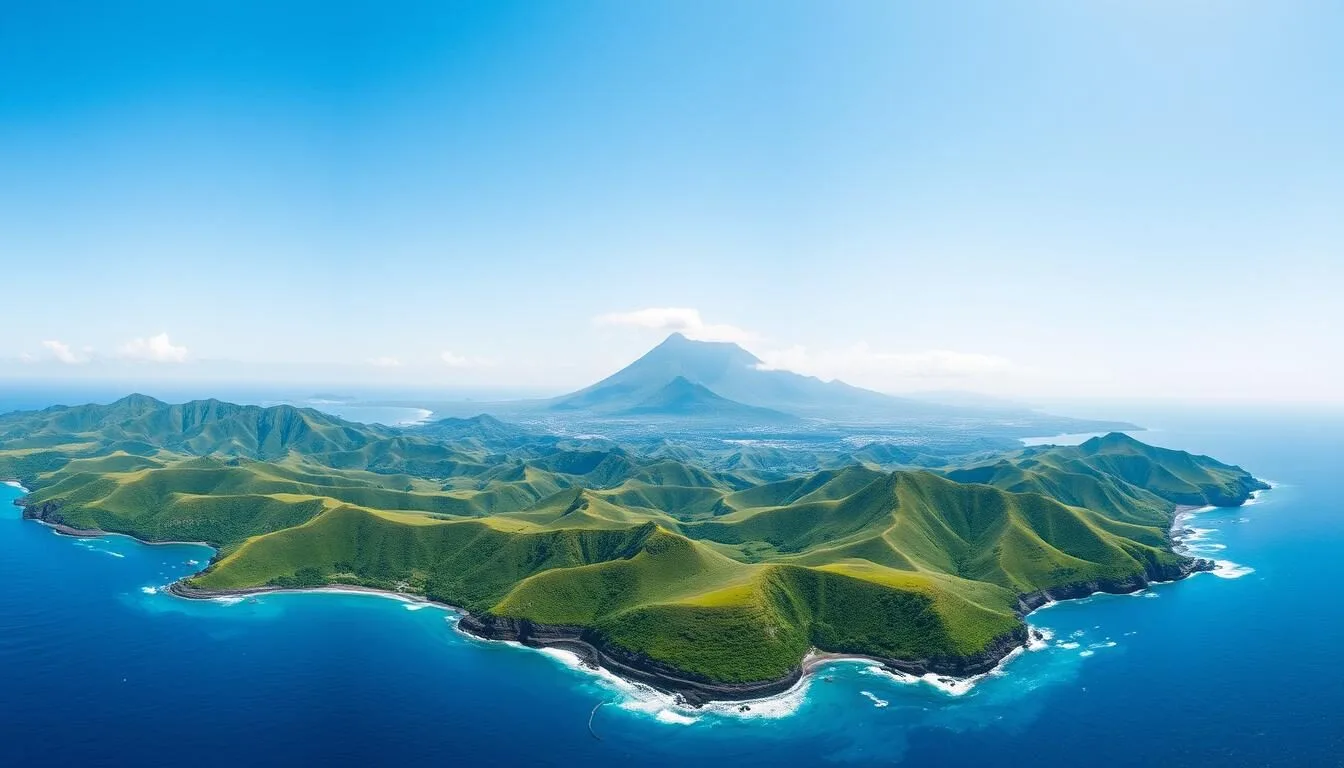
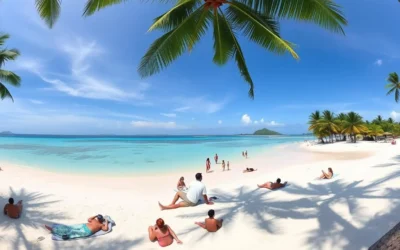
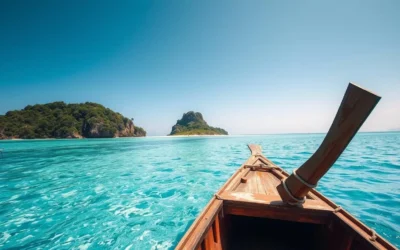
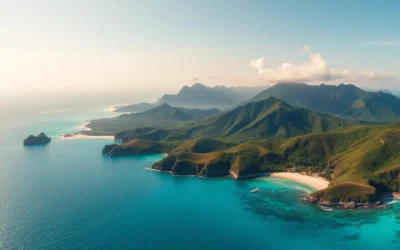
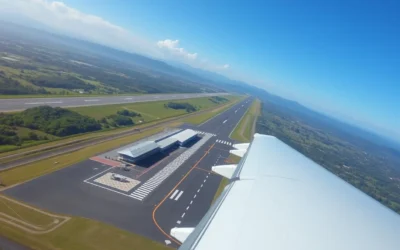
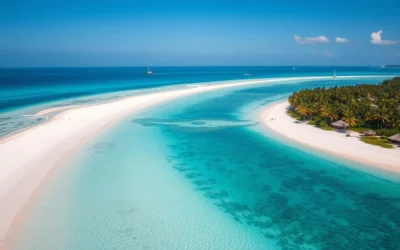
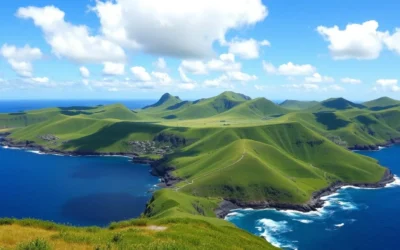
0 Comments